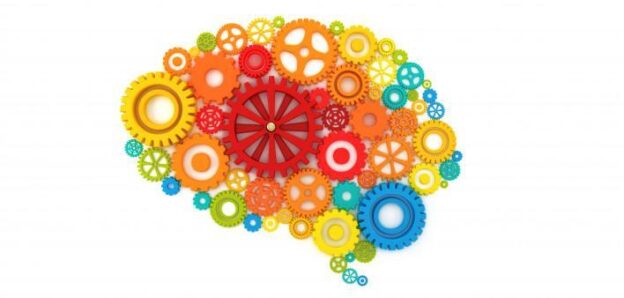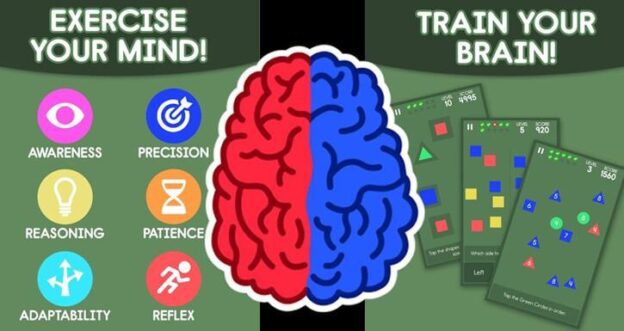Enhancing Cognitive Performance: Science & Neuroprotection
Unleashing Your Brain’s Potential: Exploring Cognitive Enhancers and Nootropics for Optimal Brain Health
Introduction
The quest for cognitive enhancement and improved brain health has become increasingly prevalent in today’s fast-paced and competitive world. People are eager to unlock their brain’s full potential and achieve excellent mental performance. This growing fascination has given rise to cognitive enhancers and nootropics, substances designed to boost brain function, memory, focus, and overall cognitive abilities. Whether you’re a student striving for academic excellence or a professional aiming to optimize productivity, understanding these supplements’ potential benefits and risks is essential for supporting your brain health and performance.
What Are Cognitive Enhancers and Nootropics?
Cognitive enhancers and nootropics encompass a range of substances that aim to enhance cognitive function, memory, focus, and overall mental performance. They are available in various forms and have gained popularity among individuals seeking to unlock their brain’s full cognitive potential. Cognitive enhancers provide an extra edge, promoting memory recall, mental clarity, and cognitive well-being. Nootropics, a specific class of cognitive enhancers, are intended to have mental benefits with minimal side effects. They promote brain health, support neuroplasticity, and enhance learning and memory processes.
The Science Behind Cognitive Enhancement
The field of cognitive enhancement delves into understanding and optimizing the brain’s cognitive functions. Neurotransmitters are crucial in cognitive processes like memory, attention, and learning. Cognitive enhancers can enhance neurotransmitter activity or promote their release, potentially improving cognitive function. Neuroplasticity, the brain’s ability to adapt and change, is another crucial aspect. Cognitive enhancers may influence neuroplasticity by promoting the formation of new neural connections and enhancing learning and memory. Additionally, these supplements can have neuroprotective effects, guarding the brain against oxidative stress, inflammation, and other factors contributing to cognitive decline.
Common Types of Cognitive Enhancers and Nootropics
Various cognitive enhancers and nootropics are available in the market, each claiming to enhance brain function and mental performance. Natural cognitive enhancers include vitamins, minerals, and herbal extracts believed to support brain health. Synthetic substances like Modafinil and Adderall, prescribed for conditions like ADHD, are sometimes used off-label as cognitive enhancers. Herbal nootropics, such as ginkgo biloba and bacopa monnieri, have a history of use in traditional medicine. The effectiveness of these supplements varies, and it is crucial to critically evaluate the research and consult healthcare professionals before incorporating them into your regimen.
Considerations and Risks
Consulting with a healthcare professional is essential before using cognitive enhancers and nootropics. Everyone’s brain chemistry and health needs are unique and personalized guidance can ensure safety and effectiveness. Understanding potential risks, interactions, and side effects is crucial. Some supplements may have contraindications with medications or medical conditions, while others may cause unwanted side effects. Prioritizing health and working with trusted professionals can help navigate the choices and minimize risks associated with cognitive enhancers.
L-Carnosine and Cerebroprotein Hydrolase: Neuroprotective Agents
L-carnosine and cerebroprotein hydrolase have gained attention for their potential neuroprotective effects. L-carnosine is a naturally occurring dipeptide that acts as an antioxidant, reducing oxidative stress and inflammation in the brain. It enhances mitochondrial function and cellular energy production, which is crucial for maintaining brain health. Cerebroprotein hydrolase is an enzyme involved in regulating amyloid-beta peptide levels, which accumulate in Alzheimer’s disease. By promoting the clearance of these peptides, cerebroprotein hydrolase may help prevent plaque buildup and slow down the progression of neurodegenerative disorders. While these compounds have shown promise in preclinical and early clinical studies, further research is needed to understand their mechanisms of action and evaluate their effectiveness fully. It is essential to consult with healthcare professionals before incorporating L-carnosine or cerebroprotein hydrolase into your regimen, especially if you have existing medical conditions or are taking other medications.
Dr. Rao’s Hospital: Excellence in Neurology and Brain Health
For individuals seeking expert assistance in the field of neurology, Dr. Rao’s Hospital in Guntur is a renowned institution dedicated to neurology and brain health. Led by Dr. Rao, who is widely recognized as the best neurosurgeon in India, the hospital provides exceptional care and expertise. Dr. Rao’s extensive knowledge and years of experience, particularly in spine surgery, have solidified his position as a leading authority in neurosurgical interventions. Patients can trust the hospital’s commitment to excellence, knowing they are in the hands of a highly skilled and compassionate neurosurgeon. By combining the latest scientific understanding with the guidance of experienced professionals, individuals can make informed choices to support their cognitive well-being and strive for optimal brain function.
Conclusion
The pursuit of cognitive enhancement and improved brain health has led to the popularity of cognitive enhancers and nootropics. While these supplements hold potential benefits, it is crucial to approach them with caution and seek professional guidance. The science behind cognitive enhancement involves neurotransmitters, neuroplasticity, and neuroprotective mechanisms. Understanding the evidence and research supporting the effectiveness of different cognitive enhancers is essential. By prioritizing safety, considering individual circumstances, and working with trusted healthcare professionals, individuals can effectively navigate the choices available and support their brain health and cognitive performance. With its commitment to excellence in neurology and brain health, Dr. Rao’s Hospital offers valuable insights and guidance in this journey. Together, we can unlock our brain’s potential and strive for optimal cognitive function.
Stay informed and connected with Dr. Rao’s hospital for more valuable insights and updates on neurology, brain health, and cognitive enhancement. We are committed to your well-being and providing the highest quality of care for all your neurological needs.
Tags: cognitive enhancers, nootropics, brain health, cognitive performance, neuroprotection, cognitive enhancement, Dr. Rao’s Hospital, neurology, brain function, memory










